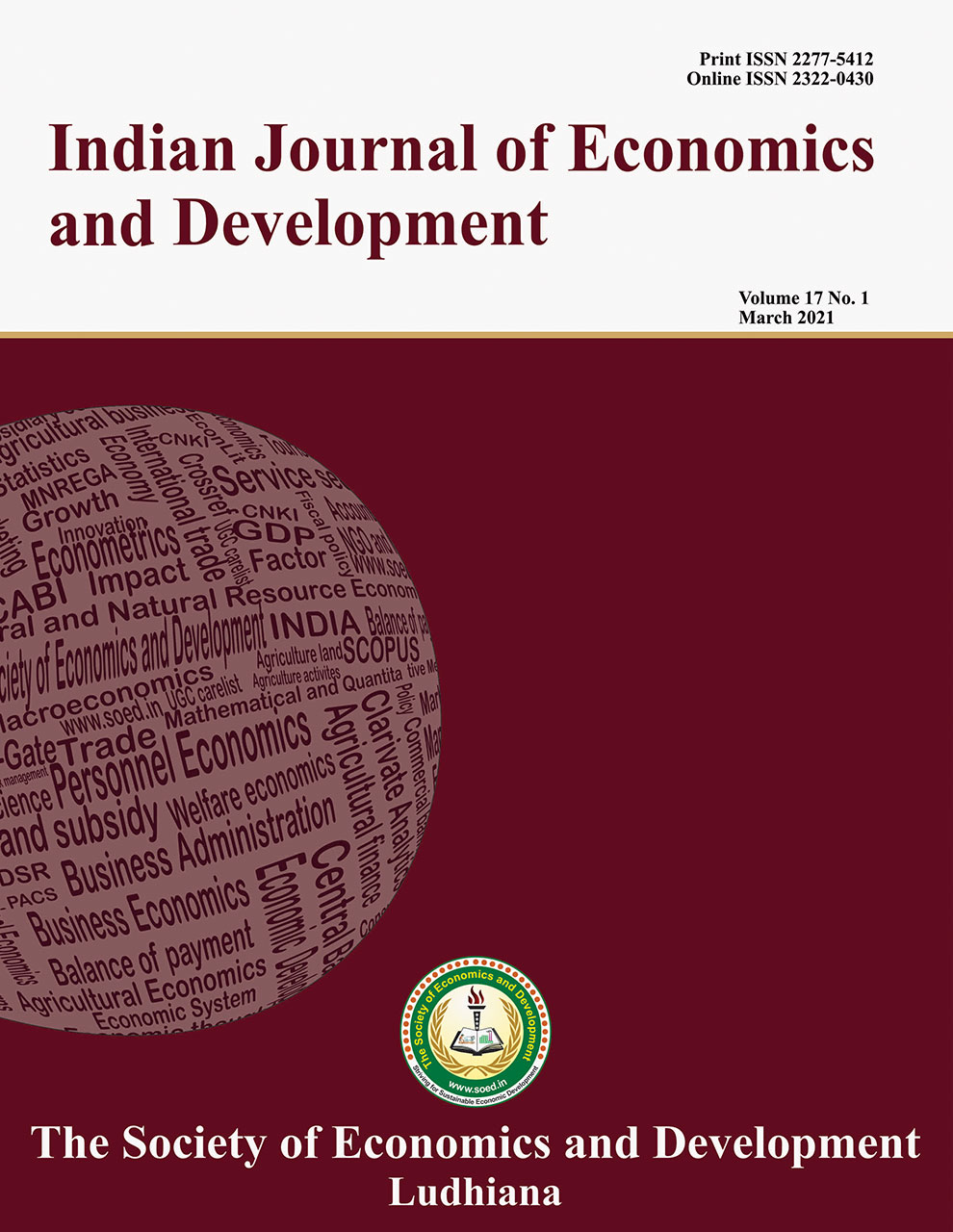Sustainability of Agriculture Systems: A Case Study of Punjab

Price: ₹ 1000
Author: Lovepreet Singh, Surbhi Bansal and Isha Sharma
Author Address: Department of Economics and Sociology, Punjab Agricultural University, Ludhiana-141004
Keywords: Cropping pattern, input use, profitability, sustainability.
JEL Codes: Q1, Q10, Q13, Q18.
Abstract
Punjab agriculture is a fitting example of intensive cultivation with the dominance of rice-wheat monoculture. The state of Punjab has one of the highest cropping intensity, irrigated area and exhaustive input use. The monoculture of wheat and paddy led to widening the gap of sustainable growth of agriculture over the time. It would lead to groundwater depletion, declining of water table level and over-exploitation of tube wells and submersible pump. The present study was conducted to examine the sustainability of agriculture system in Punjab. It was found that there is need of proper utilization of available scares water resources or use of organic sources that is, farmyard manure, compost, and green manure in order to reduce the problem of groundwater depletion or impact of chemical fertilizers on soil fertility. The results revealed that there is a need to practice crop management measures, that is, crop rotation which should help in controlling field from pest and disease. The farm management approach like appropriate cropping pattern, packages of advanced farm technology etc. and agronomic management approach like bi-directional sowing, intercropping, minimum tillage, etc. should be encouraged. It will not only help in sustaining and stabilizing the production but also increases the profitability of crops.
Description
Indian Journal of Economics and Development
Volume 16 No. SS, 2020, 225-231
DOI: https://doi.org/10.35716/ijed/NS20-046
Indexed in Clarivate Analytics (ESCI) of WoS
Lovepreet Singh, Surbhi Bansal and Isha Sharma
Department of Economics and Sociology, Punjab Agricultural University, Ludhiana-141004
Corresponding author’s email: lovepreetpau94@gmail.com



